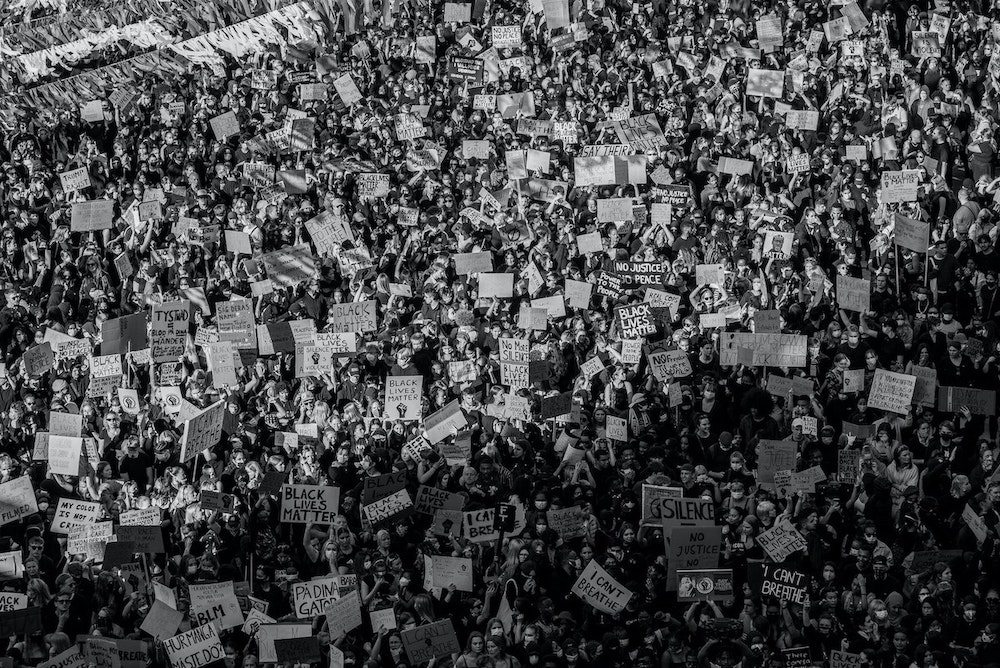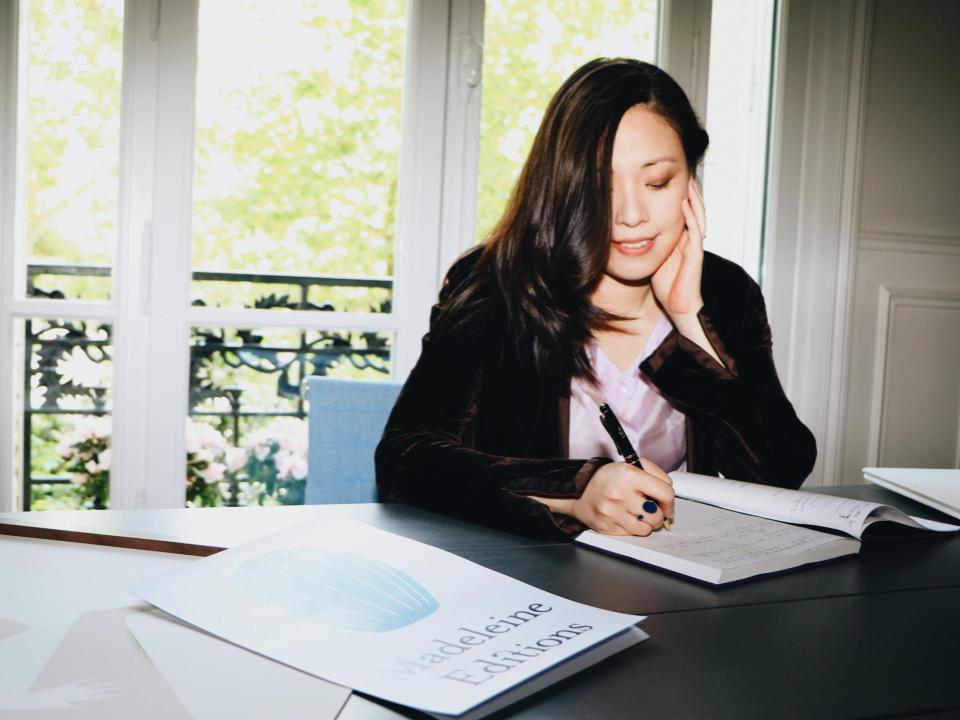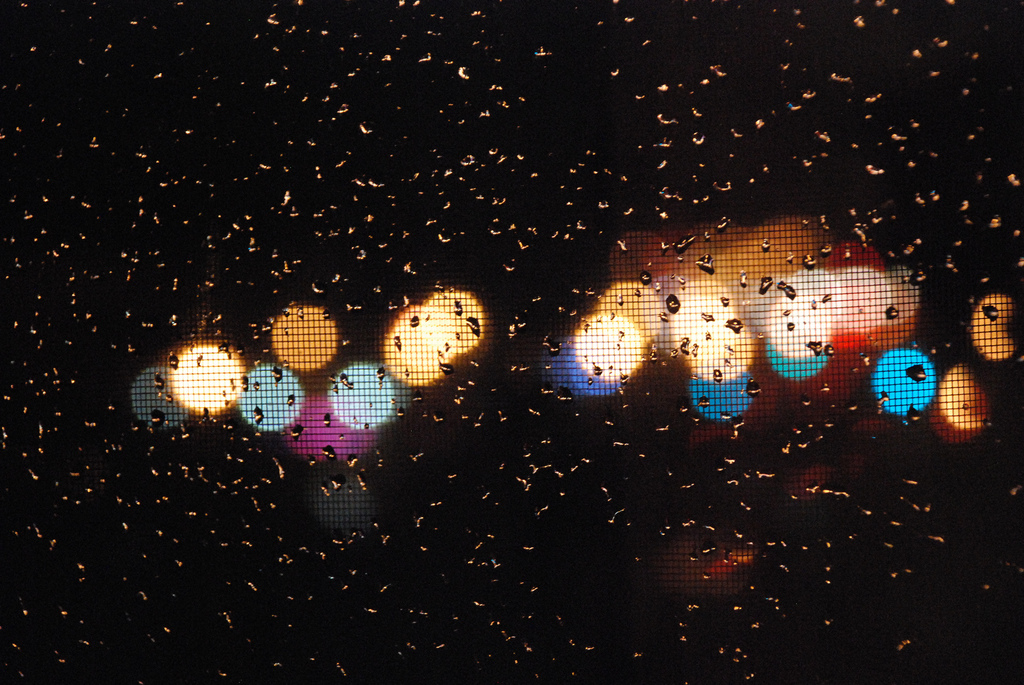There was talk in the paper again, another war in the Middle East, and the men in the store knew only that here in Rafferty’s News and Sundries, they would not have to do what they would have to do outside the store, which was to act like it was very far away or even like it was not happening. It was a place to talk. Old man Rafferty had made it that way. Too many people took in the news by themselves in America, he believed. He’d wanted a place like the kind he remembered from Ireland, where the news was not only received, but discussed. If things got heated, that was where the skill of the man running the store came into play. It was not unlike a bartender’s skill. If men cared about the world around them, they could find the fighting parts of themselves from the news faster than they could from alcohol. Now, a bartender could always tell them to step outside. Old man Rafferty had only had to do that once in twenty-eight years. His talent lay in orchestrating the discussion, in making sure it stayed in the realm of words, and ensuring that an argument was valued according to its rhetorical merit. All this was something he tried to explain to his nephew Tom Pence when Rafferty cut back to just weekends and let Tom take over the rest of the days. Tom thought about his uncle’s words that morning when he saw the headline in the paper.
The men still expected to talk. Tom had already seen that it didn’t depend on his uncle’s presence. It was too much a part of the place now. He’d realized that working there made him care more than he had before. The best way to keep things peaceful was to make people feel heard. And they could tell if that was faked. It didn’t mean that he had to agree. The customers who spoke up wanted to know how he really felt. They wanted a back-and-forth. He wondered if it might be the only chance for it they had in a day.
There was a man who came in who was Arab. Tom did not know his name. He was happy to talk to Tom about sports, but he got quiet when the talk turned to politics. It was not the quiet of having nothing to say. It wasn’t the quiet of buying what he needed and leaving the store either. It was the quiet of a sad curiosity. He looked like there was something he was trying to understand.
The morning of the war headline, the Arab was at the counter when Durell, who came in every morning, called out, “Now I have to worry about my cousin. He might get sent over there. He’s in Germany.”
The Arab looked at him. Now this is a thing, Tom thought. An Arab man and a black man and the U.S. Army and war.
“You are my brother,” the Arab said. “But I don’t want your cousin to go and I don’t want anybody to go.”
“You are my brother,” Durell said. “But that is my cousin. If he goes, then I have to support him when he is there.”
“You are still my brother,” the Arab said. “But there are people there who are going to be killed in this war. I am not talking about your cousin now. I do not know him. I respect that he is your cousin. But I do not respect war.”
“You are still my brother,” Durell said. “But I am going to pray for my cousin if he goes there. I have to.”
Tom Pence stood silently and watched. He did not know if the men were arguing or not. Their words were not arguing but there was a fire there. He saw that it wasn’t a new fire. It had been there the whole time he had known both men, and before that as well. His uncle had a fire like that, and his uncle’s Irish friends.
The Arab paid for his items and did not leave. There was nothing aggressive in the way he did not leave. Durell brought his coffee to the counter to pay for it and there was nothing aggressive in the way he did it either. This was familiar for them, Tom Pence realized. There was nothing aggressive in it because it was not new. It was a slightly more overt expression of how they moved through the world.
They stood face to face now.
“You’re my brother,” the Arab said. “But those are my people.”
“You’re my brother too,” Durell said. “But that’s my cousin.”
The Arab sighed. “So if it was just me and you then, I guess there would be no war.”
“Yes,” Durell said. “If it was just me and you, there would be no war. We would just come in here to Rafferty’s and drink this bad coffee.” He smiled at Tom.
“Ha ha,” the Arab said. “Yes, it is terrible coffee.”
Durell extended his hand. “It is terrible coffee.”
The Arab shook it. His face looked sad. “It is very bad.”
Tom Pence did not feel insulted about the coffee. He felt proud to have it be a part of their peace process.
“I hope your cousin comes out of it okay,” the Arab said.
“I hope your people come out of it okay,” Durell said.
The Arab smiled and walked out. Durell put the coffee on the counter and paid for it. As he was leaving, Tom Pence wanted to call out to him to wait. He wanted to ask him if what had just happened was an ordinary thing. He wanted to ask if it was the kind of thing a guy did in the morning and then went about his day. Because to him it had looked miraculous.
“Do you know him?” he asked Durell.
“Him? No,” Durell said. “I’ve seen him around.”
When his uncle came in to check on things in the afternoon, Tom told him about what had happened in the morning. Old man Rafferty smiled.
“I didn’t know what to do,” Tom said.
“Sounds like you didn’t need to do anything,” his uncle said.
“But if I don’t do anything, then…” Old man Rafferty smiled interestedly. “Then what?” Tom Pence wondered himself: Yes, then what? He felt too embarrassed to go on.
Old man Rafferty laughed. “This is the American in you talking, boy. You’re a conductor, you’re not a warden. You’ve got to let the people talk. In America they say that if everybody stays good and silent, then you’ve got peace.” he picked up the paper. “War! What the hell do they think, that people are going to stay silent about a thing like that? That people are going to see a headline like that and not let their hearts come out? I don’t understand this place. I’ve been here forty-four years but I don’t understand it.”
Tom Pence didn’t understand it either. He’d been happy to see Durell and the Arab talking this morning. He’d even wanted to ask if it was a miracle. But somehow when he told the story, he put himself in the position of some kind of arbiter, some kind of last word on the matter, when in fact he hadn’t had a single word to say in the morning. The newspaper said war, so he guessed there had to be a war. His uncle was right – he hadn’t needed to do anything in the morning. So what was he in relation to war, in relation to the two men? He couldn’t be under them, he couldn’t be looking up at the realm of their discourse. Why not, he thought. Because the headline, the headline was his voice. It said war, so that meant war. This thing that Durell and the Arab had, this thing that his uncle had, he did not have it. How was he supposed to get it? He was thirty years old, so he’d not had it for a long time.
And then, because he was American, he asked himself what value it really had. What value did it really have in the face of a thing like war? Of the three things that had been at work in the morning, the Arab, Durell, and war, what had been the biggest? War. So what had been the truest? What was the side to be on in the long run? It was the side of the headline.
“Well,” he said to his uncle. “It’s not like it’s going to change anything.”
His uncle looked at him. His uncle looked crestfallen.
“You know better than to say a thing like that.”
Tom Pence felt ashamed because he did know better, but he’d gone down a path and he had to stay on it.
“The paper says war, that means there’s a war,” he said. He was sickened and disgusted with himself, but it came out like he was sickened and disgusted with his uncle’s belief in having a place for people to talk.
Old man Rafferty went to the back of the store, touching and straightening a few things along the way. Tom Pence stood at the counter. A woman came in and bought a magazine and cigarettes. A boy came in and looked at a car magazine and left.
Tom knew that technically he was correct. If the paper said war, that meant war. But he also knew that the thing that happened in the morning was the kind of thing that his uncle had always hoped his store would be the setting for. It was the kind of thing that he hoped the store could be the setting for too. But something had gotten lost in the telling. How was he supposed to think of the paper if two men could rise above it as easily as that? How was he supposed to think of a voice that was his voice? He’d told his uncle like it was a nice little story for when a man was down on the ground, away from and underneath the serious business of war. Why had he told it to him like that?
He was American, and everybody wanted to come here, didn’t they? Everybody wanted to come here and be part of America, didn’t they? Men like his uncle, and his uncle’s friends. How was he supposed to look up at them? How was he supposed to stay looking up at them? Where was he supposed to do that from? That was no place, no place he knew at least. It was no place he saw in the newspapers or magazines. You didn’t look up at the world because ultimately you were where everybody was trying to be. So a thing like what he had seen this morning…it was nice and it was beautiful, but it wasn’t the cold hard world of the newspaper headline, and what he felt like he understood that nobody else understood, not the Arab or Durell or his uncle, was that you had to call it a cold hard world before you could get somewhere in it. And it was true that he was working at his uncle’s store just like his uncle had done, but he sure wasn’t going to be doing that for twenty-eight years. He sure was going to get somewhere else with it.
That thing he’d seen them do this morning, that thing with calling each other ‘my brother’, where were they really going to take that anyway? Where were they really going to go with it? Tom Pence didn’t know where his own life was going to go, but he felt like his best chance was on the side of the headline, even when the headline said war. War was going somewhere at least. He felt ashamed to think it, but he just wanted something to be going somewhere, all this time that he stood behind the counter at Rafferty’s and a big unreachable world was happening in the newspaper, and even the people who came in and bought a lousy pack of gum looked like they had every opportunity for adventure and for drama and for life when they left the store sometimes.
His uncle came back from the storeroom.
“Do you really think that thing this morning doesn’t change anything?” old man Rafferty said.
Tom Pence looked down.
“It changed me, you know,” his uncle said. “It changed me and I wasn’t even there.”
Me too, Tom Pence wanted to say. It changed me too. But I don’t know to what, and I know that has to do with something I don’t know to begin with, but I don’t even know what that is, and it’s just a whole lot easier to just go with the headline, to just go with what the headline says. If there’s a war, then there’s a war. I know this is a place where people expect to talk, but I don’t know what the change is when they talk like that, when I’m still here behind the counter and the people come and go, and when nobody can tell me – change to what?
Siamak Vossoughi was a finalist in Columbia Journal’s 2018 Winter Contest. He is a writer living in San Francisco. He was born in Tehran and grew up in Seattle. He has had some stories published in various journals and his collection, Better Than War, came out in in 2015.




